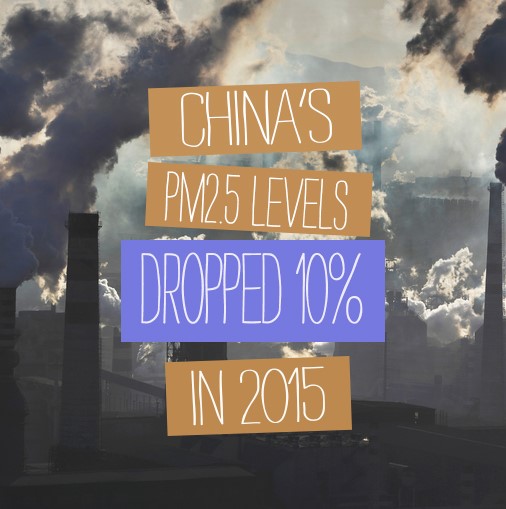Air pollution in China abates, but winter a problem: Greenpeace [Reuters]
Greenpeace China released its final city rankings for 2015, with the promising news that China’s PM2.5 levels are still in significant decline (despite the airpocalyptic winter). That said, 80 % of the cities assessed fell woefully short of national safety standards. With the government about to finalize the 13th 5 year plan, now is the last chance to introduce legislation that would wrestle down China’s out of control coal consumption.
What is China doing to tackle its air pollution? [BBC]
Among the Red Alerts and Airpolcalypses, it can be hard to remember that China’s air quality is actually improving. The BBC spoke to 4 Chinese experts to find out how China is handling one of its most serious environmental problems.
China’s coal-burning in significant decline, figures show [Guardian]
Coal burning, China’s number one source of air pollution, has dropped dramatically, according to official figures released this week. This is yet another encouraging sign that China can reach peak carbon even earlier than the 2030 target projected by the government.
Big pig farms bring big new source of pollution to China [WVTF]
China’s demand for pork has led to a boom in intensive mega farms. Growth of these pig farms with the capacity to house tens of thousands of animals are being encouraged by the government as steady pork prices are a ‘vital to social stability’.
China: Top court upholds record penalty of US$26m for water pollution [Eco-Business]
China’s highest court ruled to uphold a record 160 million RMB fine for waters after the Jinhui Company attempted an appeal. According to the company’s lawyer, the appeal was made under the claim that the river should be able to naturally clean itself of the pollutants that were discharged into it. The court upheld the ruling, stating that the responsibility should lie with the party that sold the hazardous materials, setting an interesting precedent for cases involving big polluters.




